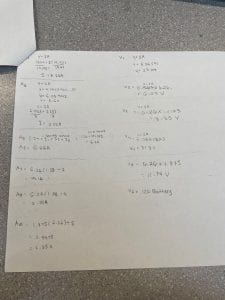Category: Grade 11
First Pager – There Will Come Soft Rains
For this assignment, I had to create a one pager for the story There Will Come Soft Rains by Ray Bradbury demonstrating the important themes within the story and how it relates to the real world such as technology usage and its impact on the environment and people.
 Loading...
Loading...
Humanities Literary Studies 11 Post

Society has argued that studying the humanities is seen as not an impractical and frivolous pursuit, but as gathering information and studying more about humanities it is however an essential for a healthy society and democracy. In today’s society we justify events or actions and put them into category without considering other people’s point of view or any liable source that have occurred in our daily lives, we don’t educate ourselves first before making any judgements or decisions in an argument. Consequently, you can be swayed by your own opinion, emotion or beliefs, but by stepping back from a situation you are enabling yourself to see all the angles. In Mandy Pipher’s 2018 article, Devaluing a humanities education ultimately devalues humanity itself, she explains the damages in today’s society and Western democratic societies; “A distrust of rational discourse about differing points of view; confusing a strong emotional response with inalienable truth; an inability to parse good information and legitimate sources from the bad and disingenuous; a lack of empathy for the humanity of people different from oneself.” In Comparable to what I said and to what Mandy Pipher’s statement was, it’s similar because she explains that people don’t listen to reasonings of others and aren’t looking beyond self-thoughts. Therefore, can confuse emotions with the truth, assuming that people are unable to empathize with other people making them self-centered. In clarification, Mandy clearly states that people these days don’t see the difference between what information is sufficient and reliable and what is unreliable. To more elaborate on why I’m on the side of studying the humanities, the quote from Mandy Pipher connects to the video, Why We (don’t) Study the Humanities, by Margarita G, in the dead poet society she points out Keating, the poetry teacher “Keating is not reading the poem at all, he’s reading into it”, he teaches his students to be independent and establish their own opinion but, in reality, they’re just following his instructions. He selects words and phrases that best fit his life philosophy and tend to interpret information without considering the context which is called cherry-picking. Some people believe they should think like Keating does, but a critical thinking goes beyond of what is seen or heard. To expand, this is a concept that can be used to relate to variety of global issues. People tend to listen to information that support their point of view until a new piece of information interests them or rather, we believe in what we see on the internet because it is highly personalized to us to which technology can majorly have an impact on our democracy. Ultimately, Studying the humanities helps us better understand who we are as individuals and knowledge on the societies as well as our cultures. I believe it provides us with skills that are vital to a healthy society and democracy in a way we can become better individuals which will eventually positively affect democracy.
Photo Courtesy of EducationTIMES
My Field Journal Digital Showcase
In my grade 11 biology class we were assigned with collecting various photographs of organisms that we discovered in nature over the course of eight weeks for this project. We ended up with around 16 distinct organisms. We had to draw what we saw in a diary, once we found the organism and had to include informations on three categories: habitat/environment, adaptation, and what it is. I selected four of my best entries from a total of sixteen journal entry to create a Digital Showcase.
Electricity Core Compentency Reflection

